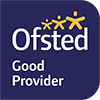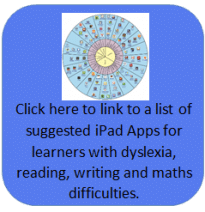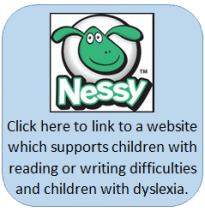Special Education Needs
A child or young person has special educational needs if he or she has a learning difficulty or disability which calls for special educational provision to be made for him or her. A learning difficulty or disability is a significantly greater difficulty in learning than the majority of others of the same age.
Special educational provision means educational or training provision that is additional to, or different from, that made generally for others of the same age in a mainstream setting in England.
At Mountbatten Primary School, we endeavour to ensure that all pupils have the opportunity to participate fully in the life of the school. We believe that it is essential to provide a caring and supporting environment in which all pupils are valued equally and are given the opportunity to have their needs met in order to develop their full potential.
The four areas of need identified within the SEN Code of Practice underpinning this:
- Cognition and Learning Needs
- Social, Emotional and Mental Health
- Communication and Interaction
- Sensory and/or Physical Needs
For further information about SENCO, or if you want to talk to someone about your child, please contact the school office on (01482) 375224.
The SENCO is Miss Jenny Schofield.
The Governor responsible for Special Educational Needs is Mrs Lynne Clarke.
Download further information and documents below:
To find out more about the Hull’s SEND local offer, please click the information banner below:

“Pupils learn how to keep safe when using the internet.”

“Pupils support each other well when they are completing their work.”

“Pupils enjoy learning about a wide range of subjects.”

“Children settle into school quickly.”

“Leaders have thought carefully about the curriculum plans they have introduced.”

“The residential visit to Robinwood encourages pupils to experience new challenges and work collaboratively with their friends.”

“Children start to learn to read as soon as they enter the school.”

“There is a clear focus on the teaching of early mathematics and reading.”

“Curriculum plans are well sequenced.”

“Pupils recommend the school to their friends.”

“There is a strong team culture within the school.”

“Staff are well trained in teaching children to read.”

“Leaders have considered what pupils might need to know to broaden their understanding of the world around them.”

“The school enjoyed recent success when the computing club won a local area competition using their coding skills.”

“Leaders and teachers make regular checks to see how well pupils with special educational needs and/or disabilities (SEND) are doing.”

“Staff welcome the highquality training they receive. They feel proud to work in the school.”

“Senior leaders, alongside the multi-academy trust, have provided subject leaders with training.”

“Staff encourage
pupils to be independent from an early age.”

“Teachers who are new to the school welcome the support they receive.”

” Some teachers check carefully to find out which pupils are stuck and which pupils need further challenge during lessons.”

“The early years environment is inviting and well organised.”

“Pupils listen carefully to what adults say. They join in class discussions enthusiastically.”

“Pupils access a range of visits and activities beyond their own experiences.”

“Staff work closely with professionals from external agencies to provide support for pupils with SEND.”

“Teachers appreciate the support they receive from subject leaders to help them improve their teaching.”

“There are a wide range of school clubs.”

“Adults help pupils who fall behind.”

“The ‘Mountbatten 50’ challenges pupils to complete a range of interesting activities
before they leave the school.”

“Pupils say that behaviour is good.”

“Teachers check what pupils have learned and remembered each term.”

“There are respectful relationships between adults and pupils.”

“Subject leaders are knowledgeable about their subjects.”

“The school is calm and orderly. Pupils walk around school sensibly and are courteous to one another.”

“Pupils say they feel safe in school.”

“Leaders work well
with members of the multi-academy trust to support staff.”

“Pupils enjoy attending school.”













